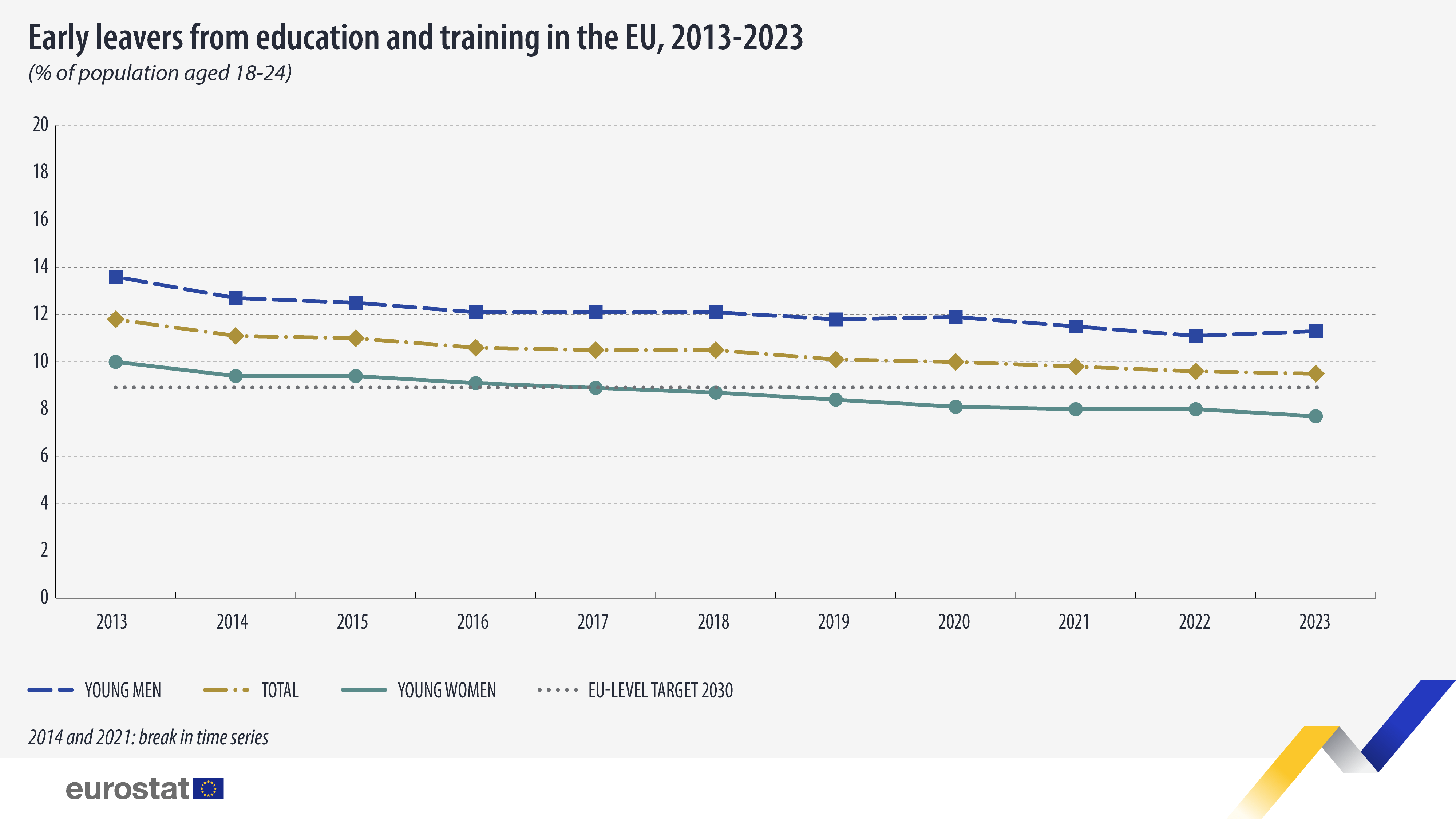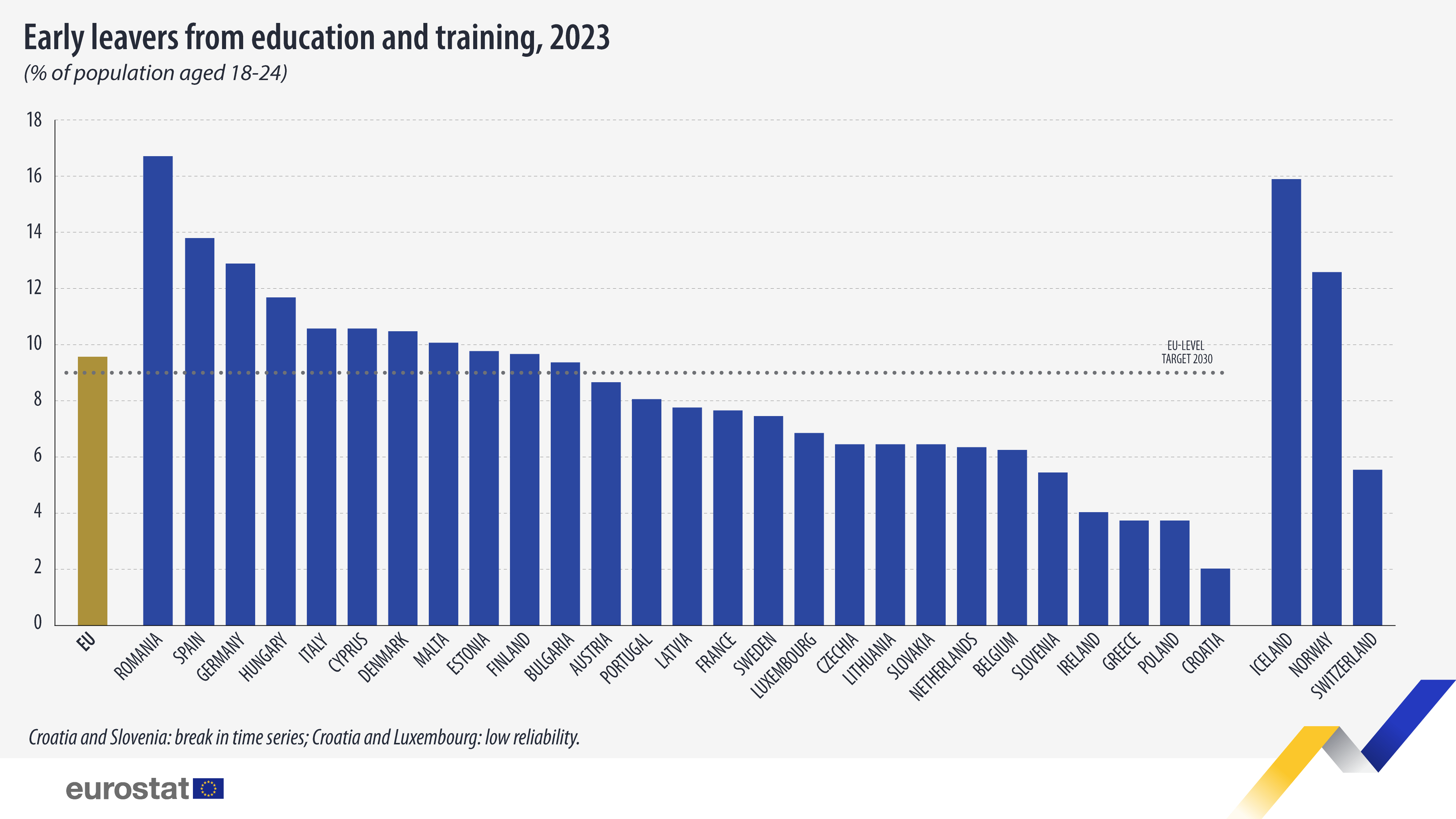In 2023, the share of ‘early school leavers’ (young people aged 18-24 leaving early from education and training) in the EU was 9.5%. The share has steadily decreased over the last 10 years (from 11.8% in 2013), bringing the EU members closer to the target of reducing the rates of early school leavers to below 9.0% by 2030.
More young men left education and training early than women, 11.3% of men vs 7.7% of women. The share of young men decreased from 13.6% in 2013 to 11.3% in 2023. At the same time, the share of young women fell from 10.0% in 2013 to 7.7% in 2023.
Compared with 2013, 15 EU countries reported a smaller share of early leavers in 2023, with Portugal reporting the highest decrease (-10.9 percentage points (pp)), followed by Spain (-9.9 pp) and Malta (-7.1 pp). Germany recorded the biggest increase (+3.0 pp), followed by Denmark (+2.2 pp) and Slovenia (+1.5 pp).
16 EU countries have met the EU target level
Data show that 16 EU countries have already met the EU-level target of 9.0% for 2030. The lowest shares of early leavers from education and training were recorded in Croatia (2.0%), Poland and Greece (each 3.7%), and Ireland (4.0%).
At the other end of the range, the EU countries that reported the highest shares of early leavers in 2023 were Romania (16.6%), Spain (13.7%), Germany (12.8%), and Hungary (11.6%).
In 2023, the share of early leavers from education and training was lower for young women than for young men in most EU countries. Shares were approximately the same for young women and men in Romania, Czechia, Greece and Bulgaria (±0.2 pp differences).









Leave a Reply